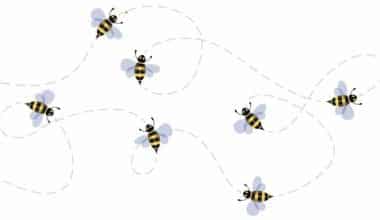Would you like to know why, how, and when market research should be used? Do you want to figure out why your customers aren’t purchasing your goods? Do you want to introduce a new product, service, or even a marketing campaign but aren’t sure what your customers want? You’ll need the help of your customers to answer the questions above. But how will you gather that information? Market research is the best approach to gather all of the answers you need in this and many other scenarios in your organization. To help you answer all of that we shall discuss on what is market research, types, method and companies. So tighten your seat belt for a knowledge ride.
What is market research?
Market research is described as the process of determining the viability of a new product or service by conducting direct customer research. This strategy enables organizations or businesses to identify their target market, gather and document feedback, and make educated decisions.
Market research can be carried out in-house by organizations or enterprises, or it can be outsourced to firms with experience in the field.
Market research can be carried out by distributing surveys, interacting with a group of people known as a sample, conducting interviews, and other methods.
The primary goal of market research is to comprehend or evaluate the market for a specific product or service in order to predict how the target audience will react to it. Market research information can be used to tailor marketing/advertising activities or to determine what features consumers value most and what services they require (if any).
Market Reserch Overview
The goal of market research is to examine the market for a specific product or service in order to determine how the target audience will react. This can include data collection for market segmentation and product differentiation, which can be used to design advertising campaigns or decide which characteristics are most important to customers.
To finish the market research process, a company must perform a number of tasks. It must collect data based on the market segment being investigated. The company must examine and understand the generated data to see if there are any patterns or important data points that can be used in decision-making.
Why is market research important?
Conducting research is one of the most effective strategies to improve customer satisfaction, lower churn, and grow your organization. Here are some of the reasons why market research is crucial and should be considered by any company:
- Valuable information: It provides information and opportunities about the value of existing and new products, thus, helping businesses plan and strategize accordingly.
- Customer-centric: It helps to determine what the customers need and want. Marketing is customer-centric and understanding the customers and their needs will help businesses design products or services that best suit them.
- Forecasts: By understanding the needs of customers, businesses can also forecast their production and sales. Market research also helps in determining optimum inventory stock.
- Competitive advantage: To stay ahead of competitors market research is a vital tool to carry out comparative studies. Businesses can devise business strategies that can help them stay ahead of their competitors.
Types of Market Research
Market research types aids in reaching useful conclusions, whether an organization or business wants to know about consumer purchase behaviour or the likelihood of people paying a given price for a product.
Following are the types:
#1. Primary Market Research
(Qualitative and quantitative research are combined): Primary market research types is a procedure in which organizations or enterprises contact end-users directly or hire a third party to conduct relevant studies in order to obtain data. The information gathered can be qualitative (non-numerical) or quantitative (numerical) (numerical or statistical data).
There are two sorts of information that can be gathered during primary market research types: exploratory and specific. Exploratory research is a type of open-ended research in which an issue is investigated by asking open-ended questions in a comprehensive interview format, usually with a small sample of people. The sample size is limited to 6-10 people in this study. Specific research, on the other hand, is more focused and is utilized to tackle problems that exploratory research has revealed.
Primary market research types, as previously said, is a blend of qualitative and quantitative market research.
#2. Secondary Market Research
Secondary market research types make use of data compiled by third parties such as government organizations, the media, and chambers of business. Newspapers, periodicals, books, commercial websites, free government and non-government institutions, and so on all publish this information. The following are examples of secondary sources:
Public sources: such as libraries are fantastic places to find free information. Government libraries normally provide free services, and a researcher can chronicle the material that is available.
Commercial sources: Commercial sources are pricey, despite their reliability. Commercial sources of information include local newspapers, magazines, journals, and television.
Educational Institutions: Although not a popular source of information, most colleges and educational institutions are valuable sources of data because they conduct more research projects than any other industry.
What is in a Market Research?
Conducting market research entails gathering information about your company, as well as the industry and market environment in which it operates, in order to gain an understanding of elements that are not internal to your company. customers, in order to create a profile of these clients. competitors – to construct a competitive profile.
What Is Online Market Research?
Research on consumer behavior that is carried out via the internet is referred to as online market research. Market research conducted online can take either a qualitative or quantitative approach, and it is organized in the same way as primary and secondary research techniques.
What are the Benefits of Market Research?
Conducting market research is absolutely necessary in order to build client happiness and loyalty to a company. A strong market research program can help identify the key demographics and market segments that are most likely to consume a given product because it is unlikely that a product will appeal equally to every consumer. This is because it is unlikely that a product will appeal in the same way to every consumer.
The development of an organization’s advertising initiatives is another area that benefits greatly from market research. If the corporation conducts market research and finds that their customers are more likely to use Facebook than Twitter, they will be able to direct their adverts to Facebook rather than Twitter. Alternately, if they find that the customers in their target market are more concerned with the value that the product provides than with the price that it is offered at, then should focus on developing a better product rather than lowering their prices.
Steps for conducting Market Research
Knowing what to do in different situations that emerge during the study will save time and reduce complications for the researcher. Today’s successful businesses employ sophisticated market research survey software that allows them to perform extensive research on a single platform and deliver actionable insights much more quickly and with fewer issues.
Following are the steps to conduct effective market research.
#1. Define the Problem
Researchers will have an easier time asking questions if they have a well-defined research topic. These inquiries should be toward solving challenges and to the project. In fact, ensure that the questions are clear and that the responders are able to answer them. Researchers can do a test with a small group to see if the questions are clear and sufficient for obtaining insightful results.
The research objectives should be in a clear and concise manner. With a brief summary of the information and how it will be obtained. They should be able to respond to the question, “Why are we conducting research?”
#2. Define the Sample
Researchers need a representative sample to do market research, which can be acquired using one of several sampling procedures. A representative sample is a small group of people who, as closely as possible, represent a broader group.
- An organization cannot waste their resources in collecting information from the wrong population. It is important that the population represents characteristics that matter to the researchers and that they need to investigate, are in the chosen sample.
- Take into account that marketers will always be prone to fall into a bias in the sample because there will always be people who do not answer the survey because they are busy, or answer it incompletely, so researchers may not obtain the required data.
- Regarding the size of the sample, the larger it is, the more likely it is to be representative of the population. A larger representative sample gives the researcher greater certainty that the people included are the ones they need, and they can possibly reduce bias. Therefore, if they want to avoid inaccuracy in our surveys, they should have representative and balanced samples.
- Practically all the surveys that are considered in a serious way. This are based on a scientific sampling, based on statistical and probability theories.
#3. Carry out data collection
The first step is to create a data collection instrument. They will produce research errors if they do not respond to a survey or answer it incorrectly.
#4. Analyze the results
Each stage of the market research process is connected to the next. If all of the above is done well, but no accurate analysis of the outcomes is done, the decisions made as a result will be ineffective. An in-depth investigation that doesn’t leave any loose ends will help you find solutions. Data analysis will be documented in a report, which should be prepared in a clear and concise manner so that effective decisions can be made based on it.
The goal of analyzing and interpreting the results is to find a deeper significance in the data. All of the preceding phases have up to this point.
How can researchers evaluate the outcomes? Age, sex, profession, and number of interviewees will be the only quantifiable data collected; the rest will be feelings and experiences to us by the interlocutors. For this, we can use a tool called an empathy map, which forces us to put ourselves in the shoes of our customers in order to find the traits that will allow us to better match our products and services to their requirements and interests.
When the research has been well-planned, the hypotheses have been well established. Also, the appropriate data-gathering method has been followed, interpretation is usually simple and successful. What happens once you’ve completed market research?
#5. Make the Research Report
When presenting the findings, researchers should consider what they want to achieve with this research report, and they should not assume that the survey framework is the best way to do the analysis. Many researchers make the error of presenting their reports in the same sequence as their questions and fail to recognize the value of storytelling.
The greatest analysts advise the following when it comes to writing good reports: To convey the findings, use an inverted pyramid format, beginning with the most important questions about the firm that prompted the research. Instead of accumulating evidence, start with the conclusions and give them the fundamentals. Following that, scholars can provide details to readers who have the time and desire to learn more.
#6. Make Decisions
A company or researcher should never wonder why they should conduct market research; they should just do it!
Market research allows researchers to learn a wide range of facts, such as consumer purchase intentions or comments on the target market’s growth. They can also obtain useful information that will assist them in predicting the prices of their product or service and determining a point of equilibrium that will benefit both them and their customers.
What Are Paid Market Research Surveys?
Paid market research is conducted with a panel of participants who are compensated monetarily for their participation in a research project. This can involve filling out surveys, participating in group studies or research panels, or doing a combination of these and other activities. The participants are often chosen in advance and financially compensated for their contribution of time and effort.
Market research companies
W. Edwards Deming, one of the most well-known statisticians of the twentieth century and a well-known thought leader in the quality movement, famously observed, “Without data, you’re just another person with an opinion.” 1
Market research is to better understand consumer behaviour. This also informs corporate strategy for short-term issues including product releases, pricing, and packaging. Longer-term issues are also, such as competitive strengths and weaknesses, strategic positioning, changing trends, and so on.
Many significant market choices are based on data and analysis provided by independent, third-party market research companies. Despite the fact that many medium and large companies have internal market research teams. Market research companies vary greatly in terms of size. The breadth, approach, pricing, areas of focus and expertise, and client relationships. With these differences in mind, we looked at more than 25 companies to find the best options.
#1. Ipsos
Ipsos is without a doubt the best overall. Its broad range of services covers all of the major market research needs, including qualitative and quantitative research, subscription consumption research. Also project-based bespoke research, all across a variety of consumer data points in a variety of industries, all with a global reach.
#2. Bauman Research+Consulting
We choose Bauman as the top market research resource for small businesses because they have a wide range of experience. Also, talents while remaining modest enough that you don’t have to be a Fortune 500 client to receive their attention.
#3. Gartner
Gartner wins our selection for best market research companies supplier for major enterprises not just because it is one of the world’s most well-known. And respected firms, but also because it provides a wide range of extra services.
#4. Proactive Worldwide
While there are several specialised market research companies, Proactive Worldwide stands out as the best. Proactive Worldwide is a competitive analysis agency that specializes in assisting businesses in determining who their competitors are. And how to respond to competitive threats.
#4. Stitch Marketing Research
We chose Stitch Marketing Research as the most cost-effective and well-respected market research firm. Also, stitch gives its customers the most control and transparency over their market research expenditure.
What Are Paid Market Research Surveys?
Paid market research involves a group of people who participate in a study. In addition, this may entail completing questionnaires, participating in focus groups, or serving on research panels, among other things. Individuals are frequently encourage financially for their time and effort.
How Much Does Market Research Cost?
Plan on spending between $20,000 and $50,000 on a qualitative or quantitative custom market research project on average. This is the range of costs you should anticipate. Expect to pay closer to the upper end of that range for market research assignments that are carried out by a specialized firm operating inside your industry’s particular expertise.
What is an Example of Market Research?
The testing of new products or the gathering of information from customers about the types of goods and services they require but do not presently have is one of the most common uses of market research. Many businesses nowadays use this method.
For instance, a corporation that is contemplating entering into business might perform marketing research. Doing this may help determine whether or not their product or service will be successful in the marketplace. If the findings of the market research demonstrate that there is consumer interest, the company can confidently move forward with the implementation of the business plan. In the event that this is not the case, the corporation ought to make use of the findings of the market research in order to modify the product so that it satisfies the demands of the target audience.
FAQ
What is market research in a business?
Market research blends consumer behaviour and economic trends to confirm and improve your business idea. It’s crucial to understand your consumer base from the outset.
How can I make $50 a day?
Here are just 5 of the best ways to make $50 a day working online:
- Start selling on eBay. Becoming an eBay seller is easy, inexpensive, and if you have a knack for sales, it can become very profitable
- Start selling on Poshmark.
- Work as a freelance writer.
- Find a social media marketing job.
- Take surveys.
How can I get rich in 5 years?
5 steps to becoming a millionaire, from a millennial who did it in 5 years
- Get paid what you’re worth. …
- Save a ton of money … …
- Develop multiple streams of income. …
- Invest in what you know. …
- Monitor your net worth.






